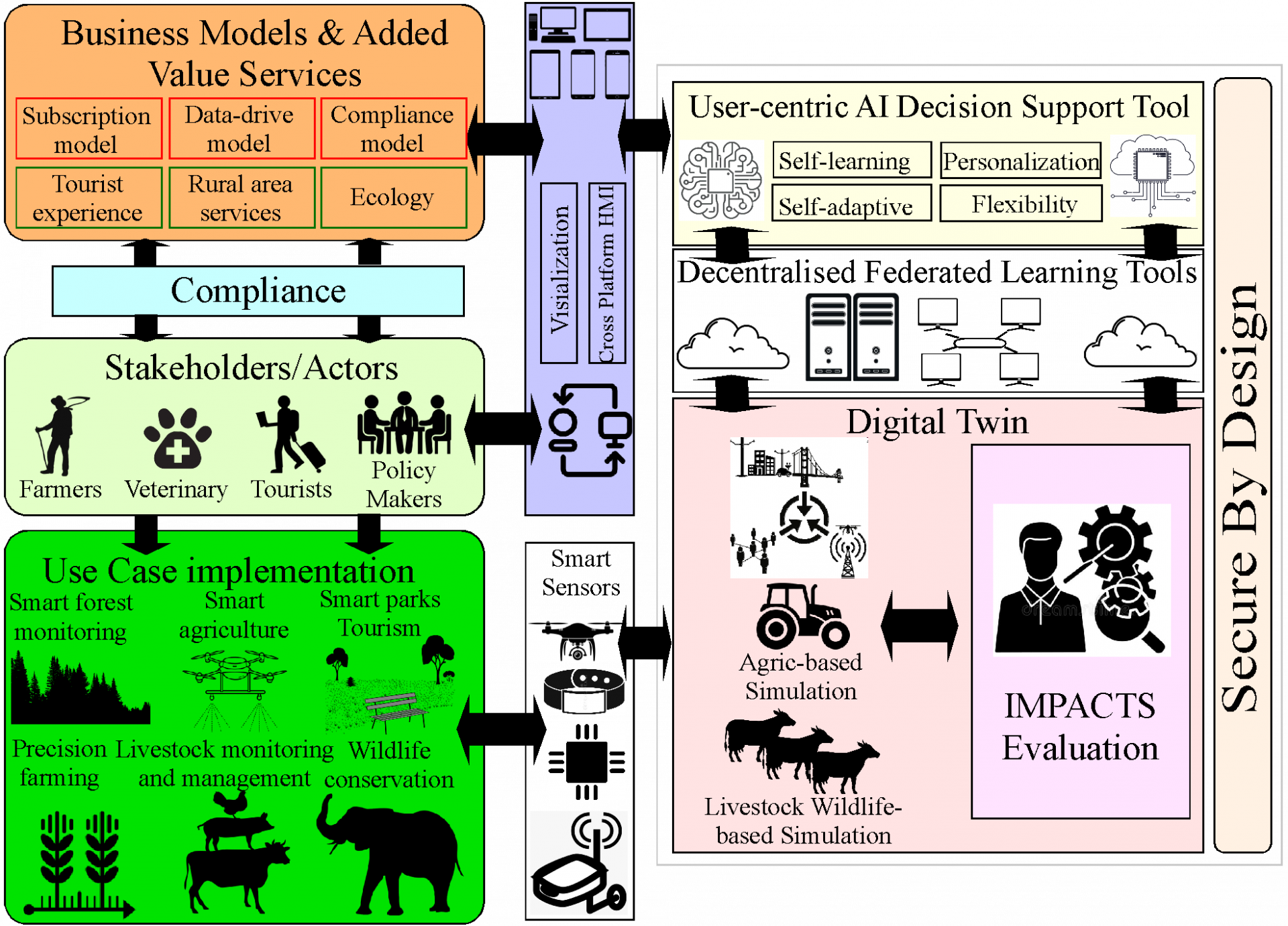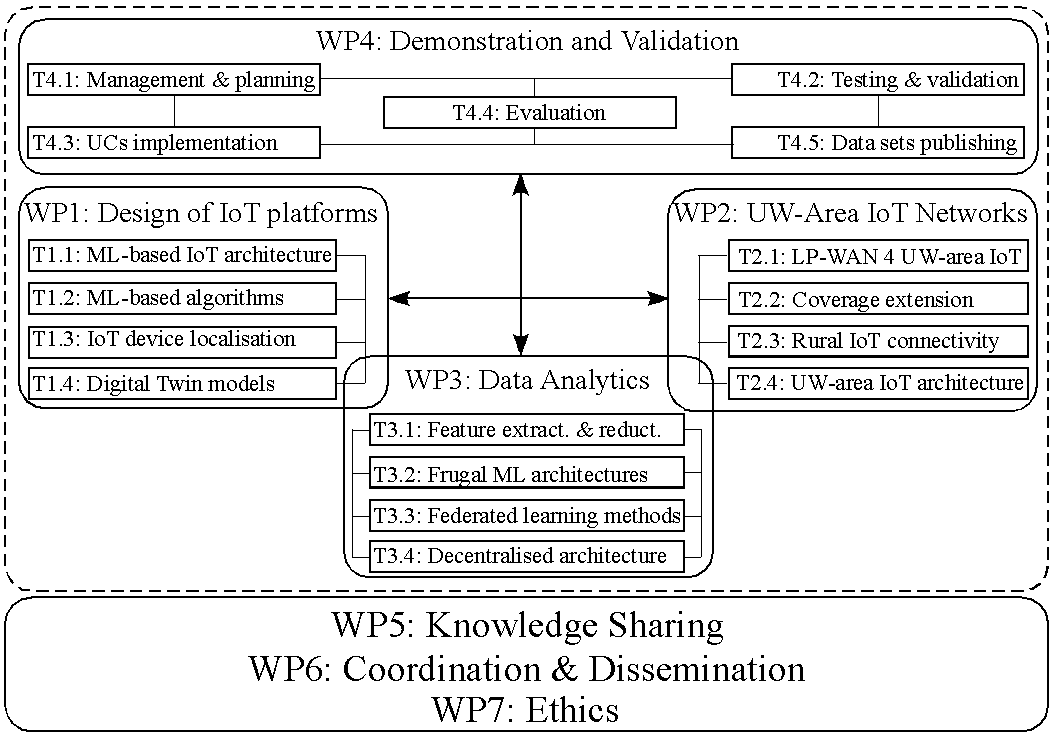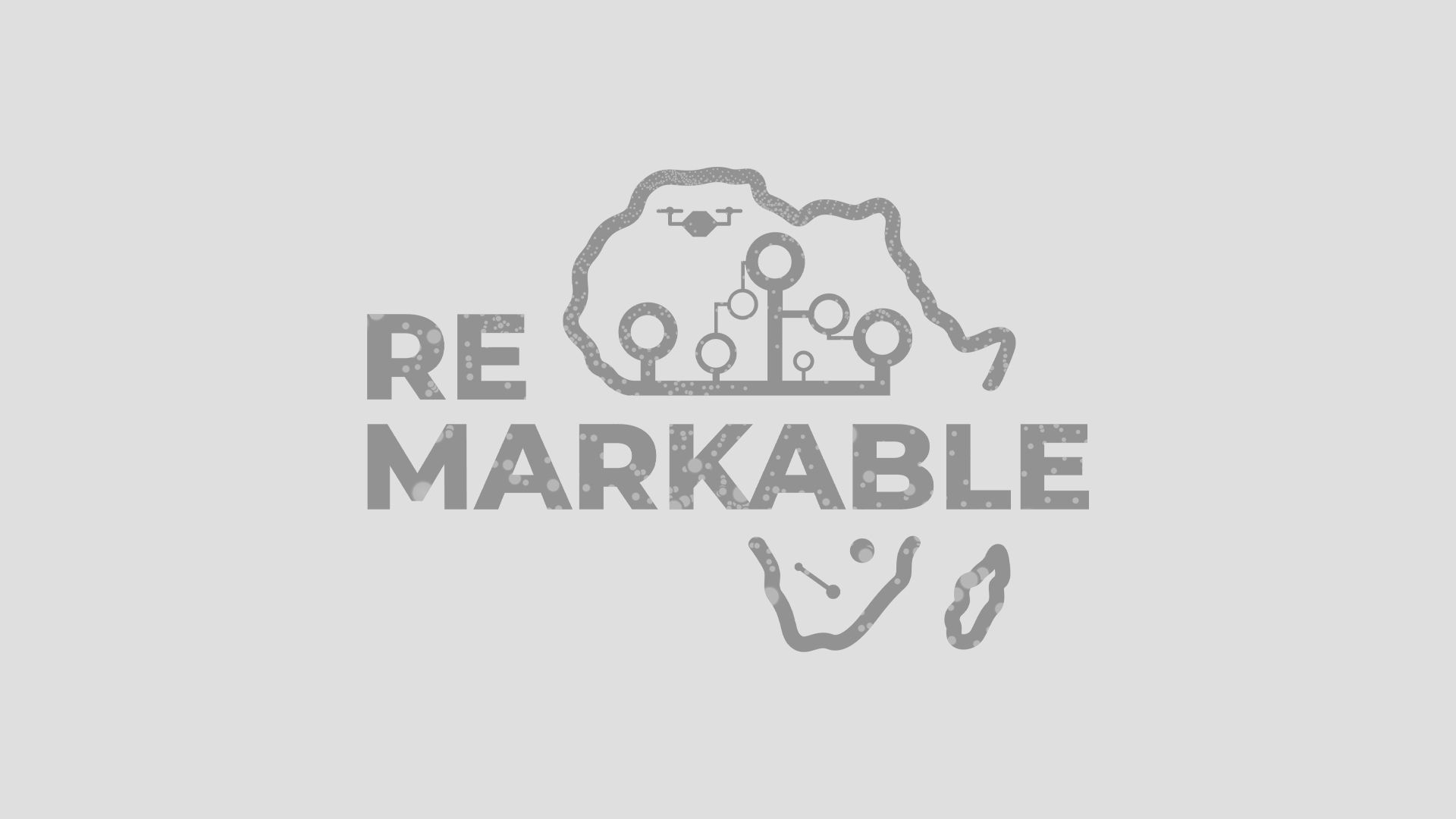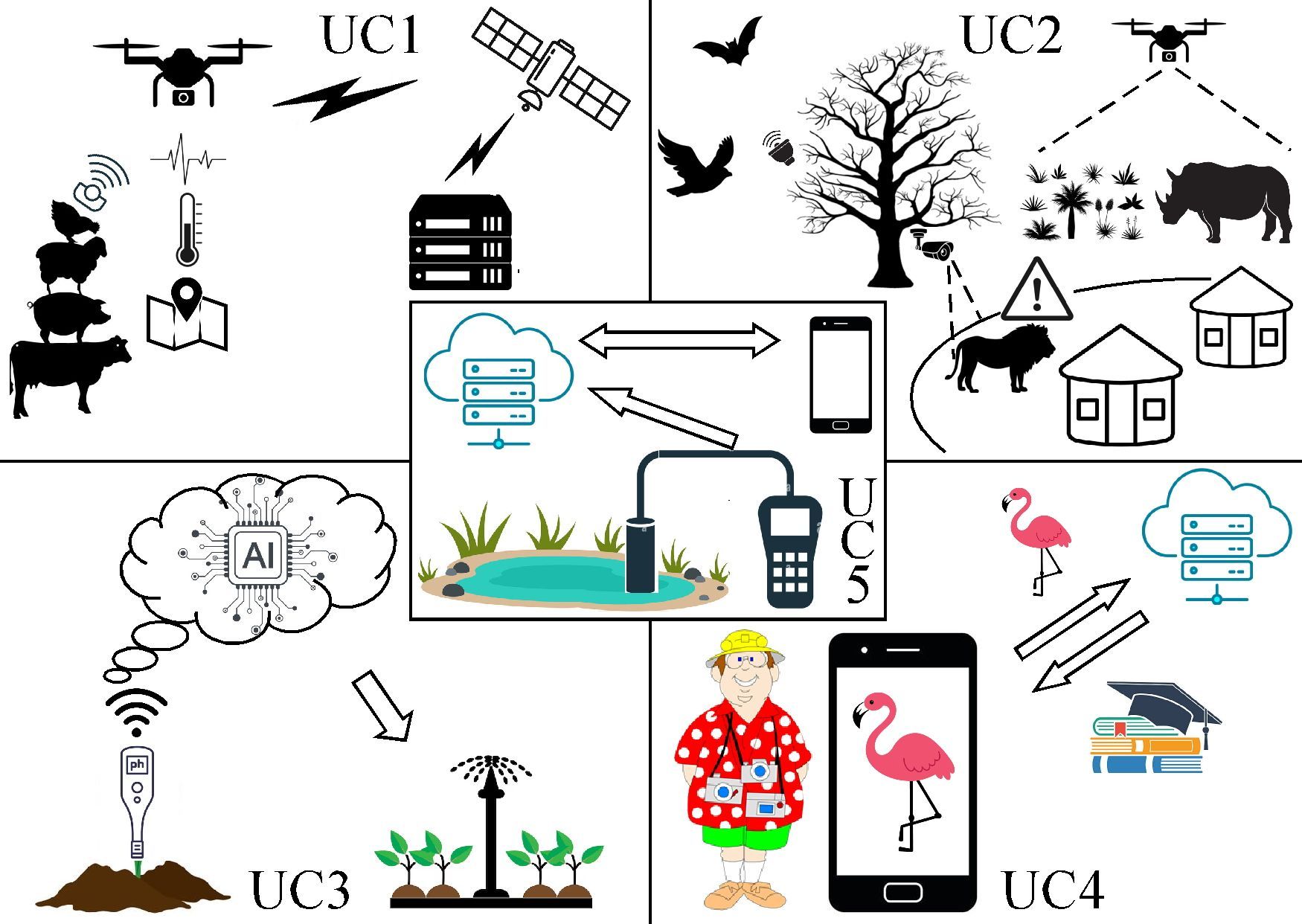Research
Project Scope and Vision

The REMARKABLE project vision is to bring IoT/ML systems a step closer to seamless, energy efficient and secure deployment targeting use cases in deep rural areas.
Work Packages

The project is structured into seven work packages (WPs), including four research WPs, each one corresponding to an individual research objective. More precisely, WP1 to WP4 are research WPs (WP4 is devoted to inter-disciplinary system development, deployment and experimentation), WP5 concerns training and networking, WP6 is devoted to dissemination, outreach and management, while WP7 deals with ethics requirements.
Demonstration Sites

The REMARKABLE project is application-driven, putting the research and innovation tasks in WP1-3 in the context of inter-disciplinary effort to deploy, test, validate and collect data sets inspired by rural use cases that will be evaluated at predefined demonstration sites.
Use Cases

The project will validate its results through 5 pre-defined use case (UC) scenarios. The main goal of these UCs is to enable pastoralists/farmers to improve their well-being through better access to health services (UC 5), improvement of the quality and outputs of their soils, livestock and crops, and general environment (UCs 1, 3, 4), while managing undesirable trade-offs for biodiversity conservation (UCs 1, 5). The pre-defined UCs include:
- UC1: Livestock monitoring and management
- UC2: Wildlife monitoring
- UC3: Soil mineral content/Water monitoring and Extension/Advisory system
- UC4: Enhancing the ‘national park experience’ and providing essential monitoring data
- UC5: Environmental monitoring (river pollution, air quality, desertification, etc.)
The geographical dispersion (Morocco, Nigeria, South Africa) of the demo sites (covering the North, South, East and West Africa) allows for exploration and confirms the replicability of services and solutions in different socio-economic contexts to maximize the impact of REMARKABLE services across rural areas in Africa.

